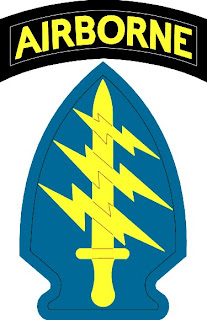--General Snowden, before a plaque signed
and presented to him by the last Japanese Emperor
of the Empire of Japan (Hirohito)
Strangers on this road, we are all
We are not two, we are one
--Strangers, Golden Smog
_______________________
[NOTE: An officer and a gentleman died this week in our town. The date was 18 February 2017, one day before the start of the Battle of Iwo Jima, in which Lt. General Snowden led his men with great honor. We are running this re-post from 26 March 2015 so that his memory may not be in vain.]
We
recently had the pleasure of meeting a hometown hero, Lt. General
Lawrence "Larry" Snowden (R) who, at 93, is the senior survivor of the
protracted and bloody World War II Battle of Iwo Jima, a climatic event
of WW II in the Pacific lasting from 19 Feb 1945 to 26 Mar 45.
The
General was wounded twice in the battle, leaving the hospital against
medical advice and hopping a mail flight in order to get back to the
island to command his men. He participated in eleven campaigns over the
course of a career in which he saw action in three wars (WWII, Korea and
Vietnam).
But Gen. Snowden is neither your typical military man nor retiree in a conservative part of the country.
Mr. Snowden traveled to Iwo Jima again last month, as he has every year for the last 15 years, to lead a "Reunion of Honor" with both his fellow survivors from the U.S. Marines well as the Japanese soldiers whom they fought.
His mission is a solemn one of reconciliation with men who were once
his mortal enemies but, as the widow of the Japanese commanding general
said to him,
"Once enemies, now friends."
As Snowden told a local journalist last year,
"Those men didn't want to be here any more than we did. They were doing their duty. You don't hate anybody for that" (After 68 Years, the Battle of Iwo Jima Stays Fresh.)
When
we asked how he reached this enlightened state, he smiled and gave his
mother credit. He recalls being a pugilistic young man engaging in
"fisticuffs" with his fellows and going on about "hating" someone. She
told him that he didn't "know enough about anyone else to allow [him] to
feel hatred," and that he could find another way of dealing with his
anger. He got the idea then that the head could rule the emotions.
With
recent attention to the concept of "moral injury" amongst soldiers, the
idea of recognition, understanding and forgiveness between fighting men
seems an essential move towards healing.
Snowden has
commanded every level of combat unit from Rifle Company to Regiment. As a
General Officer he served as Chief of Staff HQ, USMC. His route to
reconciliation began during the Korean War when he worked alongside his
former Japanese adversaries while coordinating logistical efforts
flowing through Japan destined for the Korean peninsular effort.
It was his first recognition that men need not retain hostilities, and that life had an ebb and flow.
He
next bumped up against the idea of reconciliation when he returned to
Japan in 1972 as Chief of Staff, U.S. Forces, Japan (a Joint Services
Command.) During that three-year posting he liaised with the Japanese
government, becoming familiar with and appreciative of Japanese society.
He left Japan for Washington D.C. in the final posting of his 37-year
military career, serving as Chief of Staff HQ, USMC.
Upon
retirement he returned to Japan as a civilian representative for Hughes
Aircraft, focusing on production and economic matters while living in
Tokyo for the next ten years. He also served as the head of the U.S.
Chamber of Commerce in Japan.
This is the backdrop to
the genesis in 1985, the 40th Anniversary of Iwo Jima, of the idea for
the Reunion of Honor, and the General has been involved in the annual
event since that time.
Notice there is nothing about warriorhood or grand patriotic celebration surrounding the event. It is simply a somber recognition of men who did the heavy lifting for their respective nations.
A
Buddhist priest who survived the fighting and the widow of the Japanese
Commanding General, along with the General's son, deliver a solemn
presentation. Following this, Mr. Snowden and his fellow survivors
ascend Mount Suribachi; they then come down and the Japanese survivors
then go up.
"I make the same speech three times: in Los Angeles, in Honolulu and Guam. I tell everybody there
will be no T-shirts, no hollering and victory celebration. From the
very beginning we have pledged that we would not ever, ever crow over
our victory there. And we've never had any problems with that."
So much for the Toby Kieth brand of patriotism.
--This painting is a retirement gift commissioned for General Snowden
by one of the riflemen he commanded on Iwo Jima
Ranger
asked the General if he had seen the film, "American Sniper". He looked
down and said his friends were always after him to see the latest war
film, but that he usually demurred.
"I have seen everything they could possibly put into one of those films, and I have no desire to see it ever again."
Semper Fi, Lt. Gen. Snowden.
_______________________
Coda: As we were leaving, Gen. Snowden received a call from the
Florida Veterans Hall of Fame; he would be nominated as their newest inductee.
Has has Ranger's Army vote.
[cross-posted
@ Milpub.]
Labels: iwo jima, Lt. General Lawrence Larry Snowden, moral injury, Mt. Suribachi, reconciliation, Reunion of Honor, usmc

















